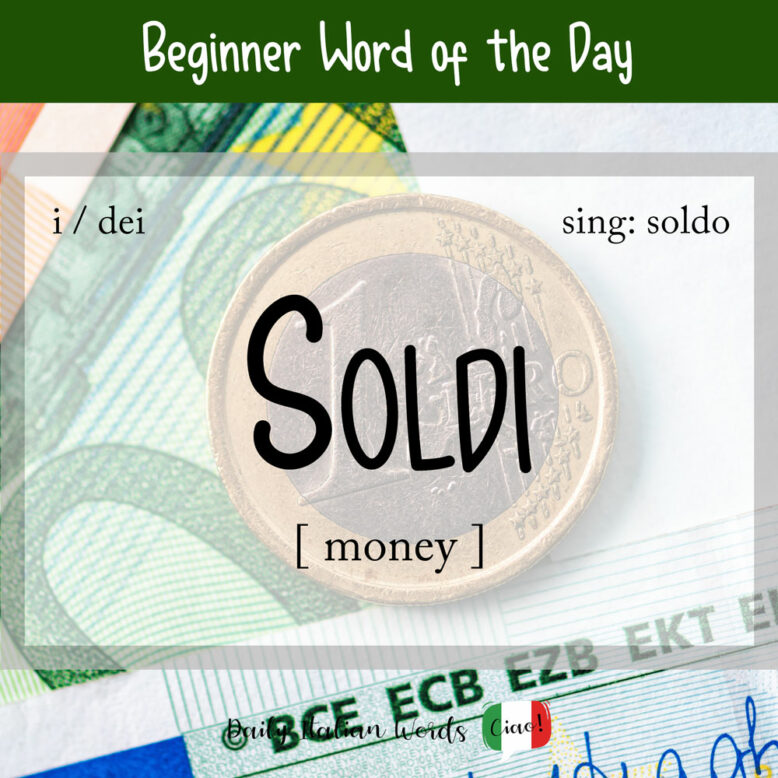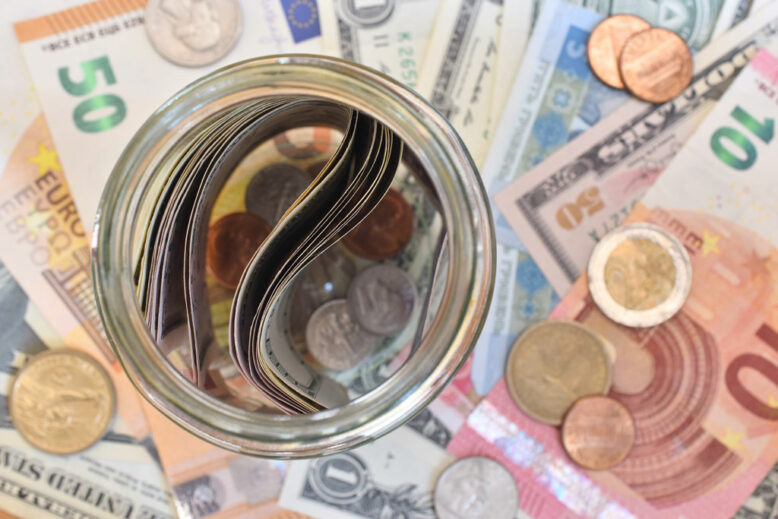When Italians talk about money, they normally use the word soldi in everyday conversation.

It is the plural of the word soldo, the name given to the Italian medieval silver coin, issued for the first time by Emperor Enrico VI in the late 12th century. The name derives from the late Roman coin solidus.
Ho risparmiato abbastanza soldi per comprare una casa.
I’ve saved up enough money to buy a house.
Whereas the plural soldi remains very much in use, you will rarely hear soldo in reference to modern day coins, if not in specific idiomatic phrases such as:
- essere senza un soldo = to be penniless
- non valere un soldo bucato = to be worthless (lit: not worth a soldo with a hole in it)
- guadagnare qualche soldo = to earn some money, a few pennies
When talking about modern day coins, the words moneta (plural: monete) or the more colloquial spicciolo (plural: spiccioli) are far more common.

The diminutive form of soldi is soldini, meaning little coins or a very small amount of money.
The expression fare soldi (lit. to make money) means to earn a lot of money or to become rich.
Giuseppe è uno che sa fare soldi. Fattelo amico!
Giuseppe is someone who knows how to make money. Make friends with him!
A more formal translation of the word money is the collective noun denaro which, opposite to soldi, is always used in the singular. Informally, money can be referred to as quattrini.
Vorrei prelevare del denaro dal conto corrente.
I wish to take out some money from my bank account.
Below are some other money-related terms that will come in handy when living in Italy.
- banconota = banknote
- biglietto da X = a banknote worth X
- assegno = cheque
- moneta = also means ‘currency’ in addition to ‘coin’
An expression you will certainly come across at some point is da quattro soldi. It denotes people, ideas, theories, works of art and so on that are of little value. Variations include da due soldi or da pochi soldi.
Did you know that…?
The lira was Italy’s official unit of currency until it was replaced by the euro in 1999. Unlike American coins which each have their own designated name, Italians simply state the value – for example, una moneta da cinque centesimi is a five-cent coin and una moneta da venti centesimi is a twenty-cent coin.
Heather Broster is a graduate with honours in linguistics from the University of Western Ontario. She is an aspiring polyglot, proficient in English and Italian, as well as Japanese, Welsh, and French to varying degrees of fluency. Originally from Toronto, Heather has resided in various countries, notably Italy for a period of six years. Her primary focus lies in the fields of language acquisition, education, and bilingual instruction.


